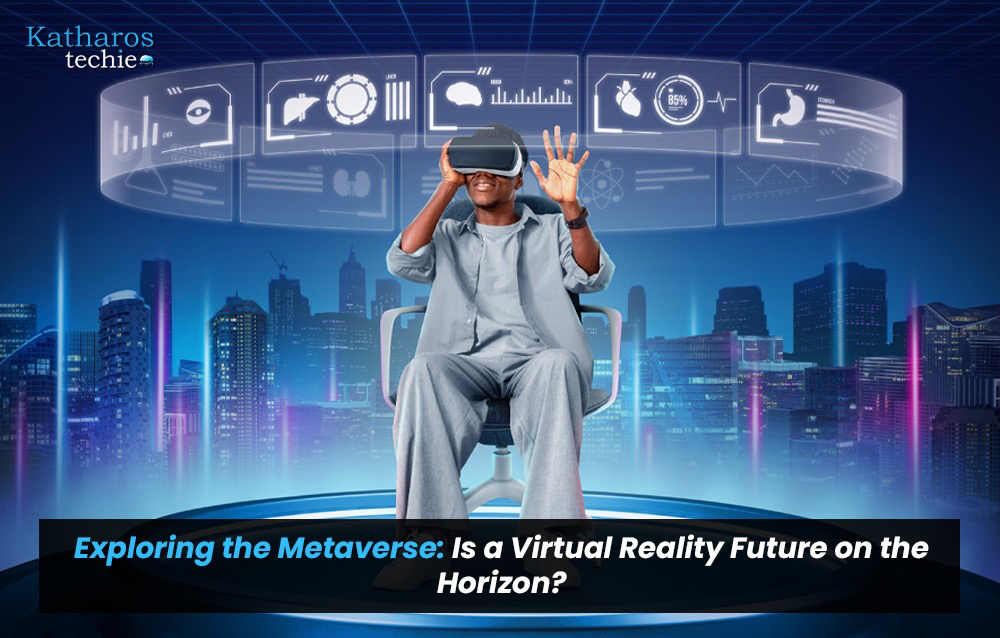
Exploring the Metaverse: Is a Virtual Reality Future on the Horizon?
By katharostechie

The concept of the Metaverse has gained popularity in science fiction for decades, but what exactly is it, and could it become a reality in the future?
A metaverse is a shared virtual space with which users can access and interact in real time. Frequently depicted as a virtual world, users can create and customize avatars, explore different environments, and interact with other users. The concept of a metaverse gained widespread popularity in science fiction books, movies, and video games, and it has long captured the imagination of people around the world.
Second Life is a well-known Metaverse where users can create and customize avatars, interact with others, and participate in various activities and experiences. Metaverses include virtual reality games like Fortnite and platforms like VR Chat.
But with the rapid advancement of technology, many people are starting to wonder if the metaverse could become a reality. Virtual reality (VR) and augmented reality (AR) have made significant strides in recent years. It is now possible to experience immersive, 3D environments in a way that was once only imaginable. The internet enables people to connect and communicate with each other globally, creating a platform for a virtual shared space.

Could the metaverse become a reality in the future? There are undoubtedly many challenges to overcome before it can become a reality. One of the biggest challenges is the issue of scale. Creating a virtual world that is accessible to millions or even billions of people requires a massive amount of computing power and data storage. It also requires a robust and reliable infrastructure to ensure that the metaverse can function smoothly and without interruption.
Another challenge is the question of ownership and governance. In a virtual shared space, who owns the virtual land and assets? Who will resolve disputes and enforce rules and regulations? Answering these questions is necessary for the Metaverse to become a reality.
There are also concerns about the metaverse’s impact on the real world. Some people worry that the metaverse could replace the real world, leading to a disconnection between people and a decrease in face-to-face interaction. Others worry about the potential for virtual crime, such as theft and hacking, and the ability to regulate and prevent these crimes.
Despite these challenges, many experts believe that the metaverse is inevitable. It has the potential to revolutionize the way we work, play, and interact with each other, and it could have a profound impact on the way we live our lives.

The metaverse could have several benefits, including increasing accessibility and reducing the need for physical travel. It could also provide new opportunities for education, training, and entertainment. Virtual reality allows people to experience impossible or unsafe scenarios in the real world. The Metaverse may also offer a platform for people to connect and collaborate globally, deconstructing geographical and language barriers.
There are already many companies and organizations working on creating the metaverse. Some examples include Second Life, as mentioned earlier, a virtual world established in 2003, and the Virtual Futures Salon, a network of virtual events and discussions focused on the future of technology and society.
In conclusion, while there are still many challenges to overcome before the metaverse can become a reality, the technology and infrastructure are already in place. It is only a matter of time before the metaverse becomes a reality, and it has the potential to change the world in ways that we can only begin to imagine. Ensuring the metaverse is safe, inclusive, and sustainable for all users is the key.